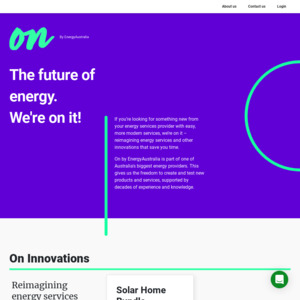You'll pay a competitive usage rate for the electricity you use. This rate won't increase for the life of the plan. (7 Years)
Minimum usage criteria of 16kWh per day.
They will install a 5.67 kW Tier 1 solar PV system and 10.1 kWh battery which you own after the 7 years.
My personal calculations (which will not be the same as yours) is that it would cost me $3500 over 7 years because that "competitive usage rate" and the access charges are higher than what I'm currently paying. Which seems like a good deal? Since the rates are fixed if the market price increases (as it is expected to) it's an even better deal.
The price of the plan I was quoted was
Blended Rate Usage Charge: 30.5c per kWh
Controlled load 2 rate: 20.3c per kWh
Daily supply charge: $0.96
![[NSW] $0 Upfront 5.67 kW Solar PV System and 10.1 kWh Battery on 7-Year Plan @ On by EnergyAustralia](https://files.ozbargain.com.au/n/71/710371.jpg?h=c85cfd71)

I'm assuming this is after government and state incentives?
Also does it include getting that interest free loan?
This seem like a very good deal to me if the only thing you are paying is electricity bills at a fixed rate for 7 years and after you own it